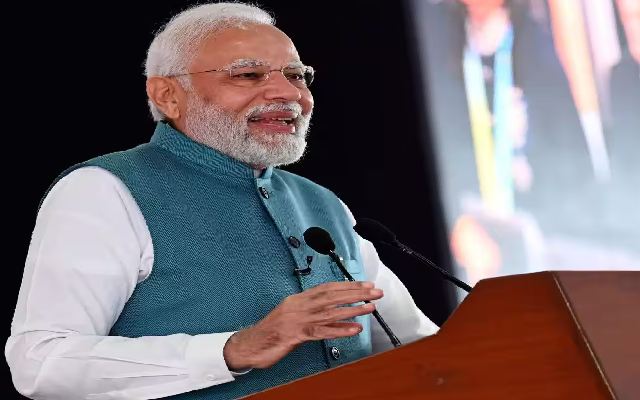Prime Minister Narendra Modi emphasized the role of electoral bonds in combating the use of black money in elections and promoting transparency during an interview with news agency ANI. He defended the initiative against opposition criticism, stating that it was intended to address the issue of illicit funds influencing elections. Modi expressed regret over the recent Supreme Court decision to scrap the scheme, suggesting that it was a step backward in the fight against black money.
In addition to discussing electoral reforms, Modi outlined his vision for a developed India, praising the Bharatiya Janata Party (BJP) for its inclusive approach and expressing confidence in the upcoming Lok Sabha elections. He highlighted the importance of empowering the poor and middle-class taxpayers, noting the significant increase in the number of income-tax returns filed over the past decade.
Modi also addressed allegations of governmental influence over investigative agencies, asserting that his administration is committed to upholding the rule of law and combating corruption. He dismissed claims that agencies like the Enforcement Directorate (ED) were being used for political purposes, emphasizing the need for a fair and transparent electoral process.
Furthermore, Modi discussed his long-term vision for India, particularly focusing on the aspirations of its youth and the importance of regional diversity. He criticized the opposition for attempting to politicize issues like the construction of the Ram Temple and reaffirmed his commitment to foreign policy initiatives aimed at ensuring the safety and well-being of Indian citizens abroad.
On the economic front, Modi highlighted efforts to attract foreign investment, citing examples such as Tesla’s interest in the Indian market. He emphasized the government’s focus on job creation and technological advancement, pointing to collaborations with companies like Google and Samsung.
Regarding the proposal for simultaneous national and state elections, Modi expressed support for the idea, citing potential benefits for governance and electoral efficiency. However, he acknowledged the need for consensus among political parties and stakeholders before implementing such a significant reform.
In response to criticism from the Congress party, Modi defended his government’s handling of electoral financing, asserting that transparency and accountability were priorities. He credited the Supreme Court for its role in ensuring transparency in political donations through electoral bonds.
Read More :




